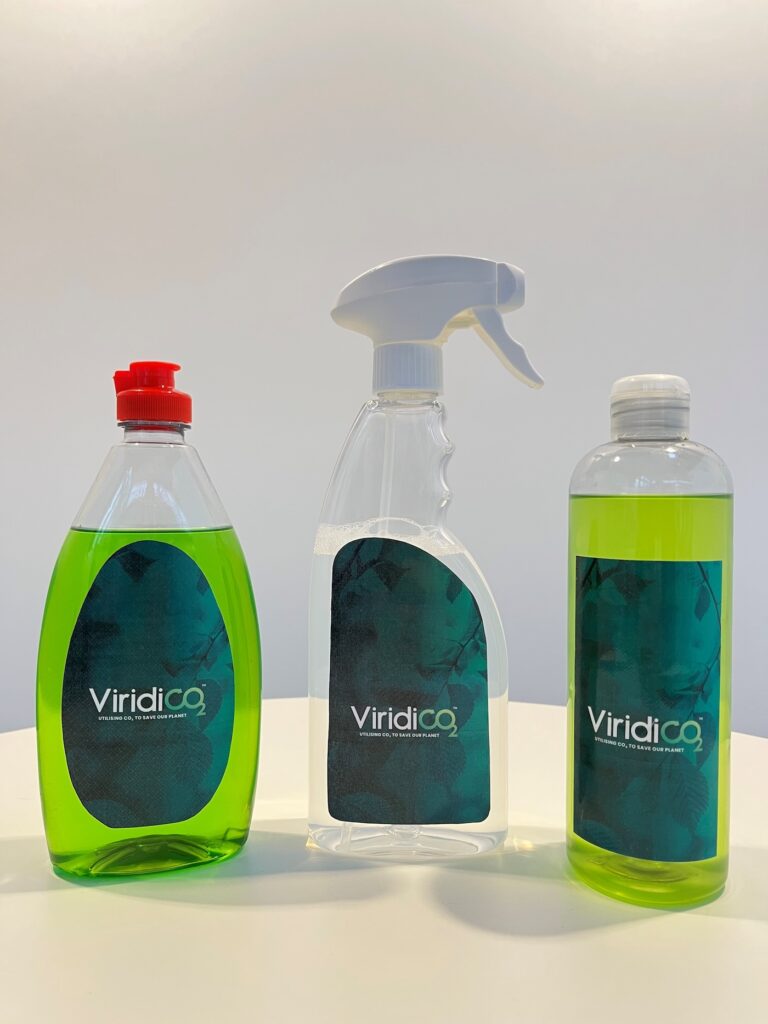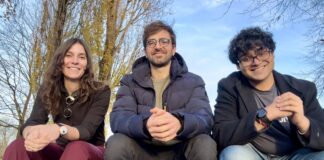Sustainability and the fight against climate change are among the most critical challenges of our time, driving the urgent need for innovative solutions to reduce carbon emissions. One remarkable startup addressing this issue is ViridiCO2, a pioneering company transforming CO2 emissions into valuable consumer products. By converting carbon dioxide that would otherwise pollute the atmosphere into essential materials used in everyday goods, ViridiCO2 not only offers manufacturers a practical and seamless way to lower their carbon footprint but also creates significant environmental benefits. In this insightful interview, we explore ViridiCO2’s groundbreaking approach, distinctive technology, scalability strategies, and long-term sustainability ambitions, shedding light on how they contribute to a greener, more sustainable future.
Could you please explain the core innovation of your CO2 startup? Which specific problem in the field of sustainability or environmental protection do you solve with your technology or approach?
ViridiCO2 provides innovative technology that turns CO2 emissions into essential consumer products. Nearly all manufactured goods today are based on carbon, but the source of this carbon is nearly always – in 87% of cases – fossil-based raw materials. Our technology takes CO2 that would otherwise be released into the atmosphere and converts it into a useful raw material for countless products used every day, in millions of tonnes per year, for example, dishwash liquid.
What distinguishes your solution from existing technologies or approaches? What unique added value do you offer?
Our solution is special in that can be adopted without need for building new capital assets – manufacturers can essentially drop it into their existing equipment without significant modification and begin to use their CO2 to make their products – with a drastically lower overall carbon footprint.
On which technology is your innovation based? Are there any current research findings or partnerships that drive your development?
It’s a proprietary technology that was born from the PhD of our CEO, Dan Stewart. From there we have developed it extensively and we are currently working with important manufacturers and major brands in the home and personal care space to create ready-for-market products.
How do you assess the scalability of your solution? What steps are you taking to achieve market readiness and establish a sustainable business model?
Our technology is readily scalable and for several reasons. Firstly. it can be produced using standard industrial processes, secondly it is highly efficient, so only small amounts of it transform large amounts of CO2 into useful products, and thirdly, as mentioned, our customers apply it in their existing infrastructure.
What measurable positive impact does your technology or approach have on the environment? Can you provide specific examples or key figures?
Studies have shown that this type of CO2 utilisation can reduce the carbon footprint of the products by up to 30%, and since due to the sheer volume of products that our technology can be applied in, the benefits can run into many millions of tonnes of CO2 saved.
Where do you see your startup in the next three to five years? What long-term sustainability goals are you pursuing?
We expect our technology to be well established in the market, giving consumers access to products with a meaningfully lower carbon footprint. In the end we want to play our part in the quest for net zero.
How do you perceive the competitive landscape in the GreenTech sector? What opportunities and challenges do you see specifically for startups?
We view the GreenTech sector to be highly competitive, as many innovative start-ups focus on solving real-world, existential challenges. For start-ups, the greatest challenge is providing an innovative solution, but without any significant cost of adoption to their customers. We unfortunately live in an environment where sustainability is very desirable, but consumers are unwilling to pay extra for it.
What role do partnerships and collaborations with other companies, research institutions, or organizations play in your success? Are there any specific examples?
We are always excited by the opportunity to partner with companies who wish to make their consumer products more sustainable. We have 12 trials operating globally to develop the next generation of surfactants which are made using CO2 as a feedstock.
How are you financing your growth? What milestones have you already achieved, and what further funding rounds are you potentially planning?
To date, we have raised over 5M Euros from grants and venture capital, and we are backed by EQT Ventures and Possible Ventures. We have signed our first commercial offtake agreements, enabling manufacturers to produce 1000s tonnes of more sustainable surfactants.
How does the current regulatory environment in the GreenTech sector affect your business activities? Do you see opportunities or challenges here?
The regulatory environment is creating a sustainability driver which is accelerating the adoption of better practices and products. As we are able to play a key role in making consumer products more sustainable, we view this environment as a big opportunity for ViridiCO2.

What importance do you attach to participating in events like the GreenTech Festival for the development of your CO2 startup? What specific benefits – for example, in terms of networking, visibility, or new partnerships – do you expect or have you already experienced?
The GreenTech Festival provides a platform from which we can reach all stakeholders in the sustainability supply chain. We can demonstrate the key aspects of our technology, in person, and give people a firsthand experience in the impacts ViridiCO2 are bringing.
What personally motivated you to found a GreenTech CO2 startup? What passion drives you?
The consequences of not shifting to sustainable, circular manufacturing processes are significant. We founded ViridiCO2 with the mission of transitioning consumer products to Net-Zero, so we can enjoy a sustainable future on our planet.
What important experiences have you gained so far in founding and building your GreenTech startup? What advice would you give to other founders in this field?
The journey in founding a company is long and hard. To succeed, you must be passionate and unwavering in your mission. Enjoy the wins, embrace the challenges, and always learn from mistakes.
How do you see the future of the GreenTech sector as a whole? Which trends and developments do you consider particularly relevant?
We believe the GreenTech sector will continue to grow and thrive, with deeptech technologies focused on hard-to-abate sectors becoming the foundation of a sustainable future.
In your opinion, what makes the GreenTech Festival a particularly valuable platform for GreenTech startups compared to other events? Are there specific aspects you would like to highlight?
The GreenTech Festival is uniquely placed in showcasing cutting-edge start-ups in front of the biggest corporations in the world., exposing new technology and springboarding their journeys.
Foto/Quelle: ViridiCO2 Ltd



















